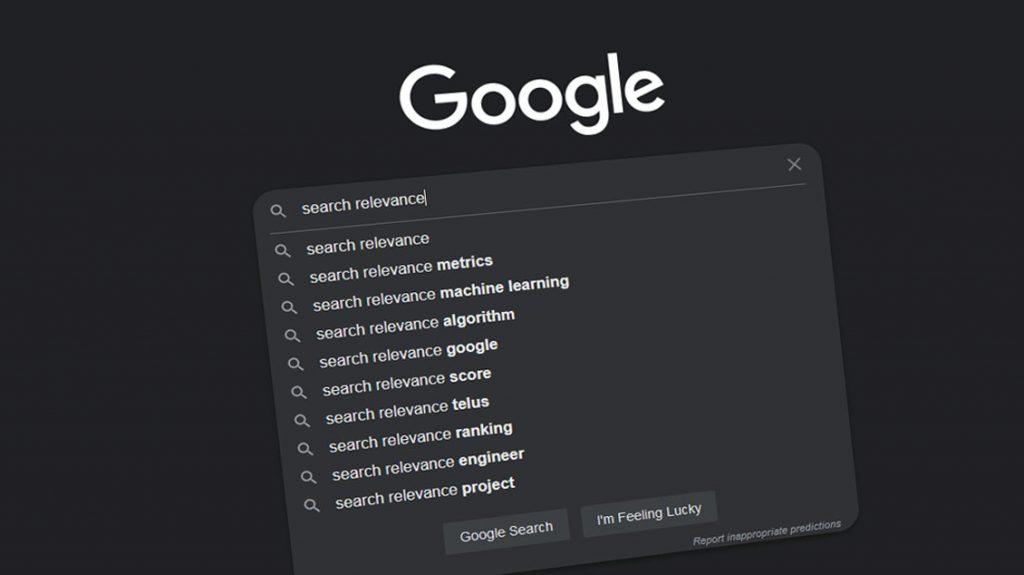
If you’re looking to take your content marketing performance up a notch, then search-relevant content may be the key.
Content marketing focuses on the discovery of potential customers through organic search engine results pages (SERPs).
In this blog post, we’ll discuss what’s involved and how you can create and optimise such content to help boost your business bottom line. Let’s get started!
What Is Search Relevancy?
Search relevancy is the degree to which a piece of content is relevant to a searcher’s query.
Search engines use a variety of factors to determine whether or not a piece of content is relevant, including the keywords used in the query, the location of the user, and the time of day.

Search Intent
In order to understand search relevancy more clearly, you need to understand search intent.
Search intent, also known as user intent, refers to the purpose behind a user’s search. When someone types a query into a search engine, they are looking for something specific. Search engines try to match the most relevant results to the user’s query.
Search relevancy helps to ensure that your content is seen by the people who are most likely to be interested in it. If your content is not relevant to the searcher’s query, it is less likely to be found in the search results.
Understanding the user’s intent will help you to create content that is more likely to be clicked on and read.
How Can Search-Relevant Content Help Your Business?
Creating search-relevant content is a great way to boost your company’s content marketing performance by understanding what the searcher is looking for.
By creating content that is tailored to what people are searching for, you can reach a wider audience and attract more traffic to your website.
Additionally, search engine optimisation (SEO) can help your content rank higher on search engine results pages, which can also lead to more website visitors.

The benefits that come with creating and optimising search-relevant content are enormous as they will attract more website visitors – and potential customers – from organic search results.
Search-relevant content can also help you save money on paid advertising, as it provides a more cost-effective way to reach potential customers.
Creating Search-Relevant Content
To create search-relevant content, you’ll need to start with keyword research. Identify the keywords and phrases that potential customers are using to search for businesses like yours.
Once you have a good understanding of the language your target audience is using, you can begin creating content around those keywords.
Make up a list of keywords that you can use as topics for your blog posts, social media posts, and other marketing collateral.
Remember to focus on creating quality content that is informative and interesting – if your content is dull and irrelevant, no amount of keyword optimisation will make it rank highly in SERPs.
In addition to creating search-friendly content, be sure to promote your content across multiple channels to reach the widest possible audience.
Optimising Search-Relevant Content
Once you’ve created some great search-relevant content, it’s time to optimise it for maximum discovery.
In addition to using your target keywords throughout your content, you’ll also want to make sure to include them in your title, meta tags, and description.
Search engines use these elements to index and rank your content, so it’s important to include relevant keywords in all of them.
You should also take advantage of social media platforms to share your content – the more places it appears online, the more likely it is to be discovered by potential customers.
The following tips can improve your search relevancy and ensure that your content is seen by the most people possible.
- Use relevant keywords in your content (but don’t overdo it – be natural)
- Optimise your website for the search engines (SEO – Meta Title, Meta Description, Image alt tags)
- Make sure your website is mobile-friendly (Looks good on all devices)
- Increase the amount of fresh, original content on your site (add new content regularly and update old content when required)
- Promote your content through social media and other channels

FAQs about Search Relevancy
As businesses strive to create more content, many are still unsure of how search intent should factor into their strategy. Here are some frequently asked questions about search intent.
What is Search Intent?
Search Intent is the reason or purpose why someone searches for something online. Search engines can determine the intent of a search engine by analysing the keywords used and the type of results that are being returned.
Understanding Search Intent is essential to create content that resonates with your target audience and achieves your desired results.
Why Should I Care About Search Intent?
Search intent can help you better understand your customers and create content that is more relevant to them.
Tailoring content to meet searcher intent can help improve your website’s rank in search engine results pages (SERP) and increase traffic to your site.
In addition, understanding searcher intent can help you create engaging content that leads to conversions.
How Can I Determine My Target Audience’s Search Intent?
One way to determine your target audience’s search intent is by taking a look at the keywords they’re using when they search.
If you can tap into the keywords your target audience is using, you’ll be able to create content that’s more likely to show up in their search results.
You can use a tool like Google Adwords Keyword Planner to research keywords.
Another way to determine your target audience’s search intent is to look at the type of content that’s currently ranking for the keywords you’re targeting.
If you can identify the commonalities between the top-ranking pieces of content, you’ll be able to create content that meets your target audience’s needs.
Both of these methods will help you create Search-Relevant Content that can boost your company’s content marketing performance.
By understanding your target audience’s search intent, you’ll be able to create content that’s more likely to show up in their search results.
What Content Types For My Target Audience’s Needs?
Your target audience’s needs will vary depending on their demographics, interests, and stage in the buying cycle. However, some types of content are more likely to appeal to them than others.
For example, informational blog posts and videos are generally popular with buyers who are still researching their options, whereas product reviews and case studies are more likely to be appreciated by those who are ready to make a purchase.
In addition, this type of content is generally more engaging and informative than other types, which can improve your chances of converting leads into customers.
If you’re not sure where to start, try brainstorming a list of topics that your target audience is likely to be interested in. You can also look at your competitors’ content to get an idea of what’s already out there.
Once you have some ideas, you can start creating Search-Relevant Content that will help boost your company’s content marketing performance.
Finally
So there you have it! Search relevancy is the key to ensuring your content is seen by those who matter most. Use relevant keywords, optimise for search engines, and create fresh original content to improve your chances of success.
Ready to get started with search-relevant content? Use the form below to get us to create content that will help you boost your business’s performance!
Article Writing Service
Use our simple step by step method for ordering Articles. Prices displayed as you proceed.
Thanks, we will contact you soon
Content Creation Package
Select the number of words you want written. A good article is typically 1000-2000 words
Add some files or images (if required)
Final cost
The final estimated price is :
Summary
| Description | Information | Quantity | Price |
|---|---|---|---|
| Discount : | |||
| Total : | |||
We specialise in creating and optimising quality content that is designed to attract attention from potential customers. We’ll work with you to develop a Search-Relevant Content strategy that meets your business’s unique needs and objectives.

